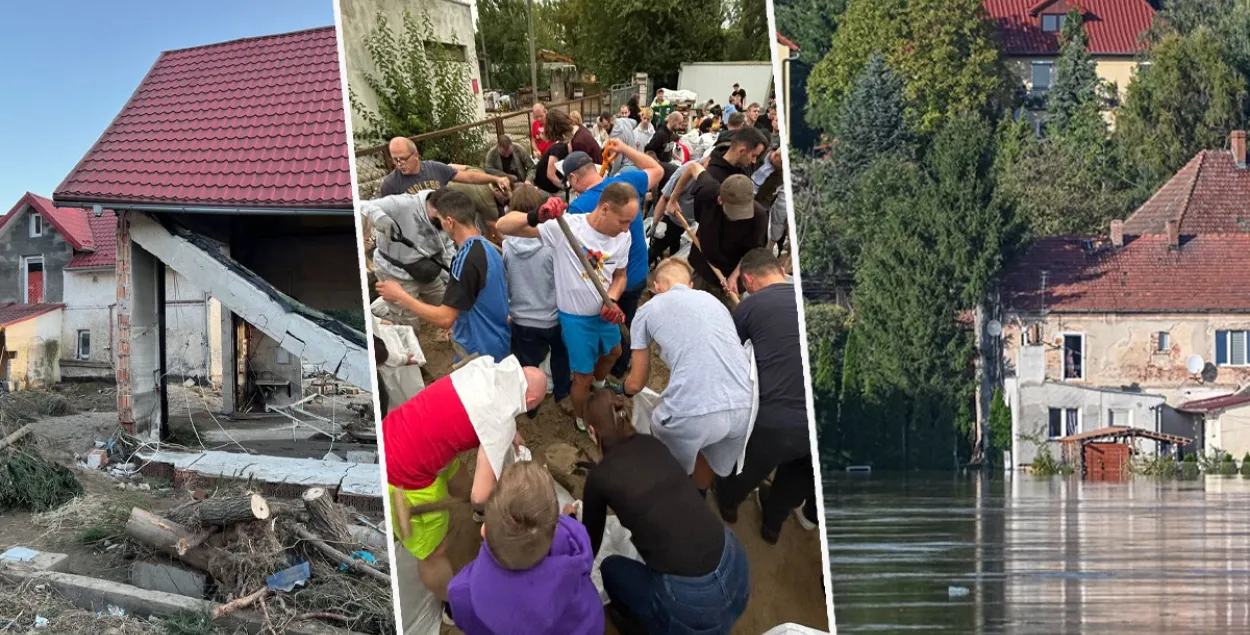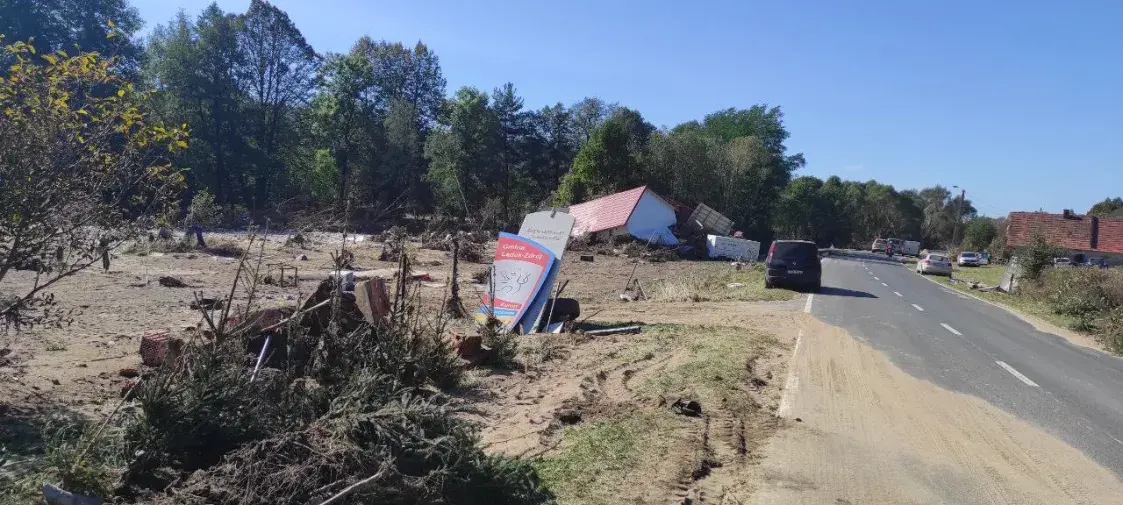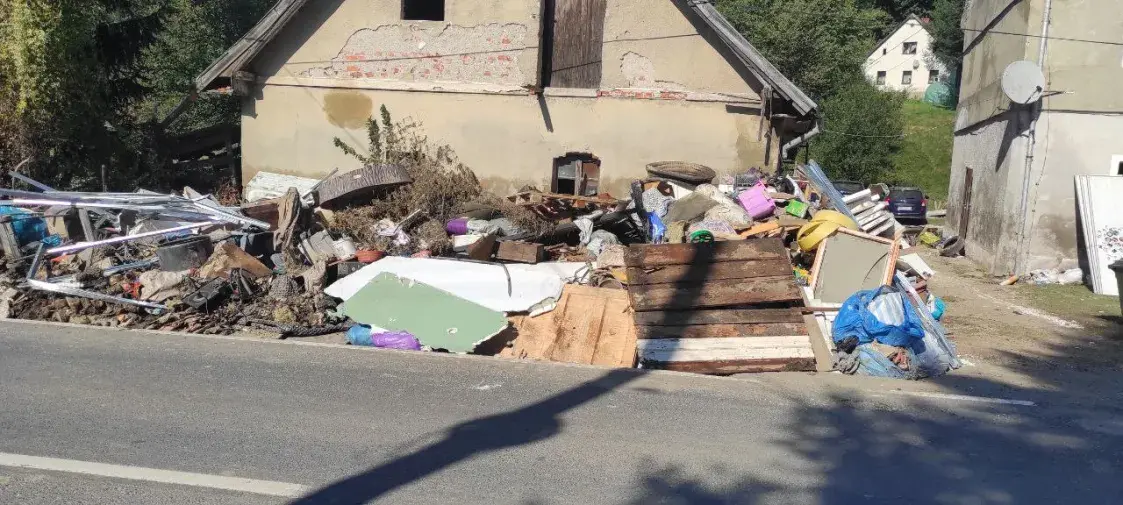Like in the movie: Belarusian helps during floods in Poland

Aftermath of the floods / Euroradio
In mid-September, the countries of Central Europe were the victims of severe floods. According to preliminary data, about 10 thousand houses were damaged only in the Lower Silesian and Silesian voivodships of Poland.
Euroradio spoke with a Belarusian, Antos (name changed), who lives in Wroclaw. He has been helping both in the city itself and in the towns affected by the big water.
"How did it all start?"
"At first, if I hadn't been told about it by locals in Wroclaw, I might have missed it completely. But later I saw the reports on social networks, on the news. I saw how scared people were, especially shopkeepers who had worked there in 1997. They said it was a horror. I was sure that the Polish authorities had drawn conclusions and prepared themselves".

"How did you know that help was needed in smaller cities?"
"There was a desire to do something. There is a Belarusian community in Wroclaw. With their help I joined the chat of volunteers. And there was a proposal to go to Kłodzko".
We went there because it was reported that the town was the most damaged. We went through Lądek-Zdrój. I had the impression that it was the most damaged of all the places we had been. There we asked at the center if help was needed. There were enough hands and we were directed to Trzebowice. The worst thing there were the demolished buildings, completely destroyed houses.
"What did it remind you of?"
"I had never seen anything like it in my life. It reminded me of a historical movie, when they show European cities after a bombing, like The Pianist. Something surreal: when you see that a piece of street isn't there, it just doesn't exist, but it should be there, or when you see a house and all that's left is the roof, there are no walls. In some places you see only the foundation, no house. There's mountains of garbage. Everything looks terrible".
"How did the locals react to you?"
"Both Belarusians and Ukrainians worked beside me. Poles were interested in us. The situation is such that there are few foreigners who can talk to Poles on an understandable level. And if you talk normally, they remain interested in you and start asking additional questions. They asked why we came and why we participated. Then the conversation turned to politics".
"How did you answer the question of why you came?"
Very simple: first of all, I live here. Second, I have opportunities and skills.
"What exactly did you do there?"
"We had to help move things out, clean up the yard. Someone cleaned up inside the house. It depends on the damaged house".

"I was at three places during the week. At the first house we were just moving firewood. In the second, the owner was rescued from the roof, and we worked all day: we tried to wash some things, take them to the storehouse to save something. In the third house, relatives came, there were a lot of people: some of us cleaned inside and some of us cleaned the yard".
"How long do you think it will take for the cities to recover from the water?"
"It depends partly on the people, partly on the authorities. But I know a man in Trzebowice who suffered the most. He had a workshop, a warehouse, a house - everything was destroyed. It was the second time in his life that he was caught in such a flood. He said he would sell and leave.
As for the others, the buildings are drying out. Some of them just need to be pumped out, some have already been cleaned up. It's hard to say".
"I have asked the locals about compensation from the government, but it is not yet known for sure. It's clear that it's not a priority yet. The main thing is not to start an epidemic there: we need to clean up the dirt, remove the garbage from the streets so that people can live and work in peace".
"What impressed you that week?"
"What impressed me was the number of volunteers and the level of support from the government. And you can see that it is not forced. It's striking.
There were some people who were ordered to do it - for example, cadets from military schools. I saw military people only in Lądek-Zdrój. I was impressed by the activity of the people, both in Wroclaw and throughout Poland. How people prepared, how they helped each other, especially if we compare it with Belarus.
I will tell you more: I remember that in Poland there was a flood, there were pictures. But in Minsk they only knew about it from the news, and in the news everything was covered superficially. It's different here. In Trzebowice I met people from Wroclaw who decided to come and help. The coverage of the events and people's reactions to them are very different".



















